Invited Speakers
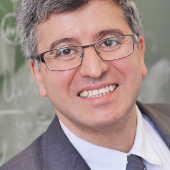
Habib Ammari
Department of Mathematics, ETH, Zurich, Switzerland
Habib Ammari is a Professor of Applied Mathematics at ETH Zürich. He received a Bachelor’s degree in 1992, a Master’s degree in 1993, and a Ph.D. in applied mathematics in 1995, all from the Ecole Polytechnique, France. Habib Ammari is a world leading expert in wave propagation phenomena in complex media, mathematical modelling in photonics and phononics, and mathematical biomedical imaging. He was awarded with several international prizes.
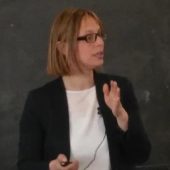
Paola F. Antonietti
MOX, Department of Mathematics, Politecnico di Milano, Italy
Paola F. Antonietti is Head of the Laboratory of Modelling and Scientific Computing MOX and Professor of Numerical Analysis at the Department of Mathematics, Politecnico di Milano. She received her PhD degree in 2007 from the University of Pavia. Her research is concerned with the approximate solution of partial differential equations arising in various fields of Applied Sciences and Engineering. She made important contributions to the development and analysis of Discontinuous Galerkin methods, with applications to computational neurosciences and engineering seismology. She is the author of one hundred papers published in peer-review International Journals. Her research has been acknowledged by scientific prizes, among them the young researchers prize awarded by Italian Society of Applied and Industrial Mathematics (SIMAI) in 2015 and the ECCOMAS Jacques Louis Lions Award in 2020. In 2015, she was granted a “Scientific Independence of Young Researchers” starting grant funded by the Italian Ministry of Universities and Research. She serves in the editorial board of a number of scientific journals, including Mathematics of Computation and SIAM Journal on Scientific Computing.
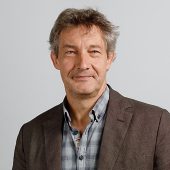
Peter Bastian
IWR, University of Heidelberg, Germany
Peter Bastian studied computer science at Erlangen-Nürnberg University and obtained a doctoral degree in mathematics from Heidelberg University in 1994. After his habilitation at Kiel University in 1999 he obtained professorships at Heidelberg University and Stuttgart University. Since 2008 he is a professor at the Interdisciplinary Center for Scientific Computing (IWR) at Heidelberg University. His scientific interests include the numerical solution of partial differential equations, applications in fluid flow, high-performance computing and software design.
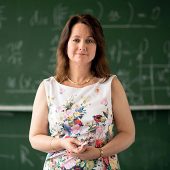
Mária Lukácová-Medvidová
Institute of Mathematics, University of Mainz, Germany
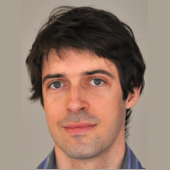
Jean-Marie Mirebeau
Department of Mathematics, University of Paris-Sud, France
Jean-Marie Mirebeau is an applied mathematics researcher at the CNRS (French national research institute) and University Paris-Saclay. His academic formation includes studies a the Ecole Normale Supérieure of Paris, and a PhD under the supervision of Pr Albert Cohen. He specializes in the design and study of numerical schemes for strongly anisotropic partial differential equations, thus involving preferred directions which may vary over the domain, addressing the resulting numerical difficulties using tools from algorithmic geometry. Mirebeau’s research themes include optimal control and optimal transport, mathematical image processing, and since recently seismic tomography and GPU computing.

Daniel Peterseim
Institute of Mathematics, University of Augsburg, Germany
Daniel Peterseim currently holds the Chair for Computational Mathematics at the University of Augsburg, Germany. He was previously a full professor for numerical simulation at the University of Bonn. He received a Ph.D. in Mathematics from the University of Zurich (2007) and a Habilitation in Mathematics from the Humboldt-Universität zu Berlin. His research covers all aspects of computational partial differential equations with applications in engineering and physics. Prof. Peterseim is most well known for his contributions in the area of computational multiscale methods. He is a recipient of the ERC consolidator grant (2019).

José A. Carrillo de la Plata
Mathematical Institute, University of Oxford, UK
José A. Carrillo is currently Professor at the University of Oxford. He previously held academic positions at Imperial College London, Universitat Autònoma de Barcelona, and Universidad de Granada, where he also did his PhD.
He works on kinetic and aggregation-diffusion equations. He has contributed to the theoretical and numerical analysis of PDEs, and their simulation in different applications such as granular media, semiconductors and lately in collective behavior. He has developed numerical schemes for nonlinear aggregation-diffusions and gradient flows preserving the free energy decay property and thus able to capture the equilibrium measures, phase transitions and their stability properties.
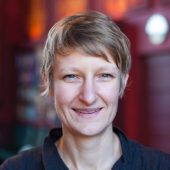
Carola–Bibiane Schönlieb
DAMTP, University of Cambridge, UK
Carola-Bibiane Schönlieb is Professor of Applied Mathematics at the Department of Applied Mathematics and Theoretical Physics, University of Cambridge. In her research she investigates variational methods, partial differential equations and machine learning for image analysis, image processing and inverse imaging problems. She has active interdisciplinary collaborations with clinicians, biologists and physicists on biomedical imaging topics, chemical engineers and plant scientists on image sensing, as well as collaborations with artists and art conservators on digital art restoration. Her research has been acknowledged by scientific prizes, among them the LMS Whitehead Prize 2016, the Philip Leverhulme Prize in 2017, and the Calderon Prize 2019.
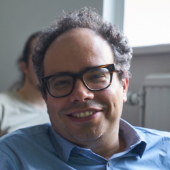
Luís O. Silva
Department of Physics, IST, University of Lisbon, Portugal
Luís O. Silva is Professor of Physics. He obtained his degrees (Lic. 1992, PhD 1997 and Habilitation 2005) from IST, and was a
post-doctoral researcher at the University of California Los Angeles from 1997 to 2001. His scientific contributions are focused on the in silico exploration of the interaction of intense beams of particles and lasers with plasmas, combining theoretical physics with massively parallel numerical simulations. He has been awarded with two ERC Advanced grants and he is a Fellow of the APS, the EPS, the European Academy of Sciences, and Corresponding Member of the Lisbon Academy of Sciences.
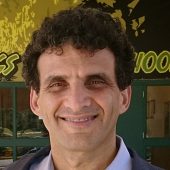
Alessandro Veneziani
MATHCS, University of Emory, USA
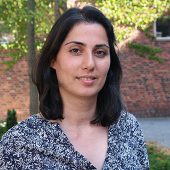
Sara Zahedi
Department of Mathematics, KTH, Stockholm, Sweden
Sara Zahedi is an Associate Professor of Numerical Analysis at the Department of Mathematics, KTH Royal Institute of Technology, Sweden. Her research concerns development, analysis, and implementation of computational methods for simulation of multiphase flow. She has in particular developed methods for numerical representation of complex evolving geometries and finite element methods for solving partial differential equations in and on evolving geometries that do not require re-meshing. In 2016 her research was recognized by a prize from European Mathematical Society.